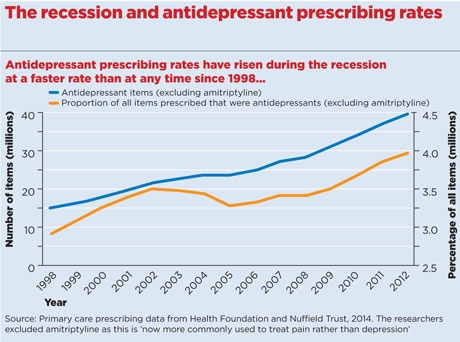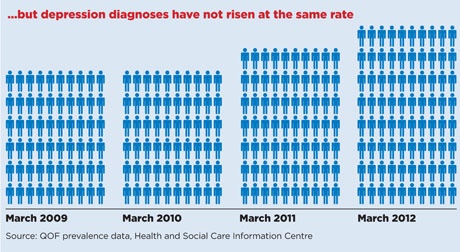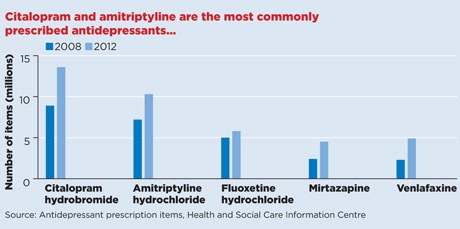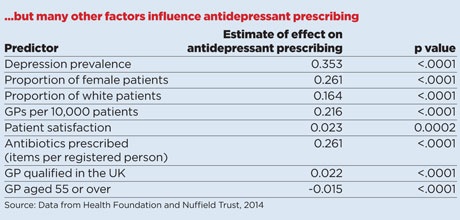A new study claims there may be an association between rising rates of GP prescribing of antidepressants in England and the financial crisis that began in 2008.
The report, Focus On: Antidepressant Prescribing, by the Health Foundation and Nuffield Trust, shows the number of antidepressants dispensed in primary care has risen at a faster rate than at any other point in the past 16 years, with an annual rise of around 8.5% per year after 2008, compared with 6.7% before the recession.
But the authors admitted there was a ‘complex interaction of factors’ driving this increase, and the rise in prescribing across the 16 years could not be linked solely to rising levels of depression.
QOF prevalence figures show only a 0.97 percentage point increase in recorded rates of depression between 2009 to 2012. The report also stated that the strongest indicator for whether a GP practice was more or less likely to prescribe antidepressants was its level of antibiotic prescribing, which the authors said ‘suggests that some GP practices have a higher propensity to prescribe than others’.
The authors also said the rising levels of antidepressant prescriptions could be linked to a change in prescribing patterns among GPs – namely the recent pressures to prescribe smaller quantities of medication at a time.
Cono Ariti, a senior research analyst at the Nuffield Trust says: ‘The jury is still out on the impact of the recession on antidepressant prescribing and the general mental health of the population.
‘To use that well-worn phrase, “more research” and better data are needed to fully understand all of the complexities of the issue.’
He adds: ‘Further research also needs to look at factors on the “supply” side. As we often find, there was wide variation in the prescribing habits of individual GP practices and regional areas.’




Pulse October survey
Take our July 2025 survey to potentially win £1.000 worth of tokens

Visit Pulse Reference for details on 140 symptoms, including easily searchable symptoms and categories, offering you a free platform to check symptoms and receive potential diagnoses during consultations.















